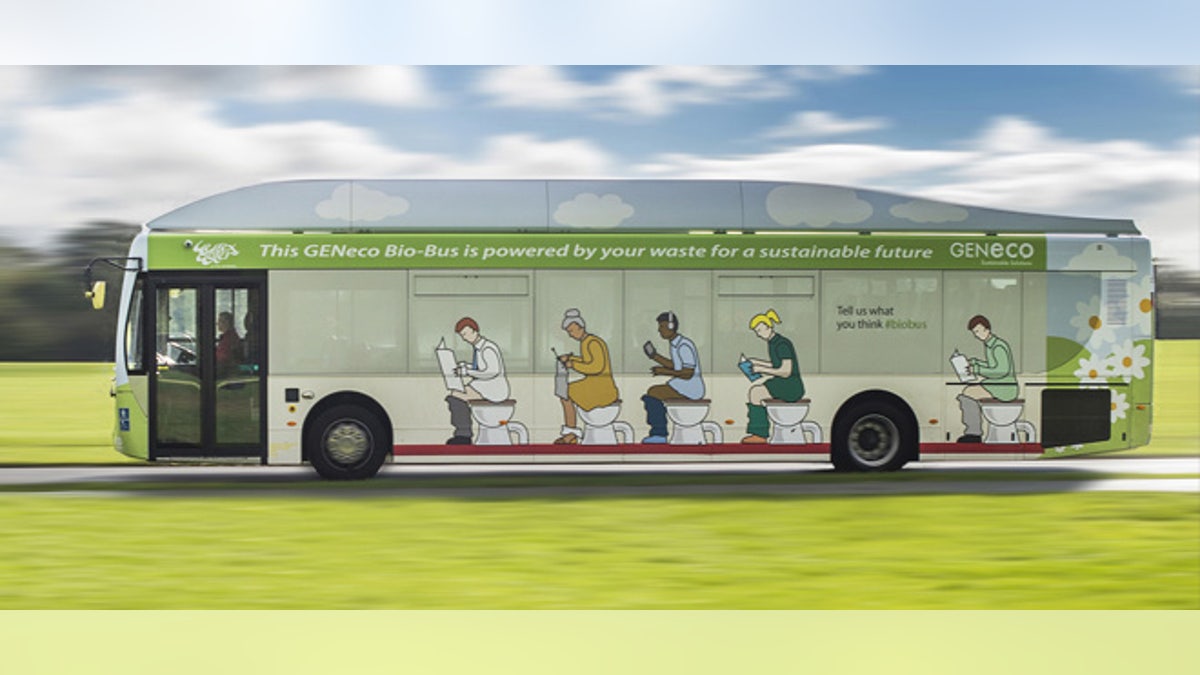
(GENeco)
The U.K.’s first poop-powered bus hit the road this week, ferrying fare-paying passengers around parts of south-west England.
But banish from your mind the image of a vehicle kitted out with toilets for seats, with a bus-load of passengers happily knocking one out to get the thing to the next stop. The reality is a little different.
This one runs solely on biomethane gas generated from human sewage and food waste. The 40-seat ‘Bio-Bus’ – to give it its official name – can travel up to 184 miles on a single tank of the gas, which is generated via a treatment process known as ‘anaerobic digestion.’
Gas production has proved so successful that some of it is also being injected into the national grid by a recently constructed state-of-the-art facility.
The green energy initiative, which is the work of Wessex Water and treatment-plant operator GENeco, is able to produce 17 million cubic meters of biomethane a year, “equivalent of meeting the power needs of 8,500 homes,” according to Wessex Water.
‘The poo bus’
Wessex Water’s vehicle, affectionately known as “the poo bus,” produces fewer, ahem, ‘emissions’ than regular diesel engines, and therefore helps to improve air quality in urban areas. Speaking of air quality, smelly impurities are removed from the gas to ensure the bus doesn’t kick up a stink among those living along its route.
The special bus is being used to transport around 10,000 passengers a month between Bristol airport and the historic city of Bath 20 miles away. The initiative comes after Bristol was crowned the European Green Capital for 2015 after impressing judges with its consistently high environmental standards.
‘Human poo is a valuable resource’
Charlotte Morton, chief executive of the Anaerobic Digestion & Bioresources Association (ADBA), said GENeco’s Bio-Bus “clearly shows that human poo and our waste food are valuable resources. Food which is unsuitable for human consumption should be separately collected and recycled [and] not wasted in landfill sites or incinerators.”
Meanwhile, GENeco general manager Mohammed Saddiq said he believes gas-powered vehicles have “an important role to play in improving air quality in U.K. cities,” adding, “But the Bio-Bus goes further than that and is actually powered by people living in the local area, including quite possibly those on the bus itself.”
The U.K.’s first poop-powered bus reminds us of the poop-powered motorcycle which landed on Japanese roads a couple of years back as part of a green initiative run by toilet-maker Toto.
[Via BBC]








































